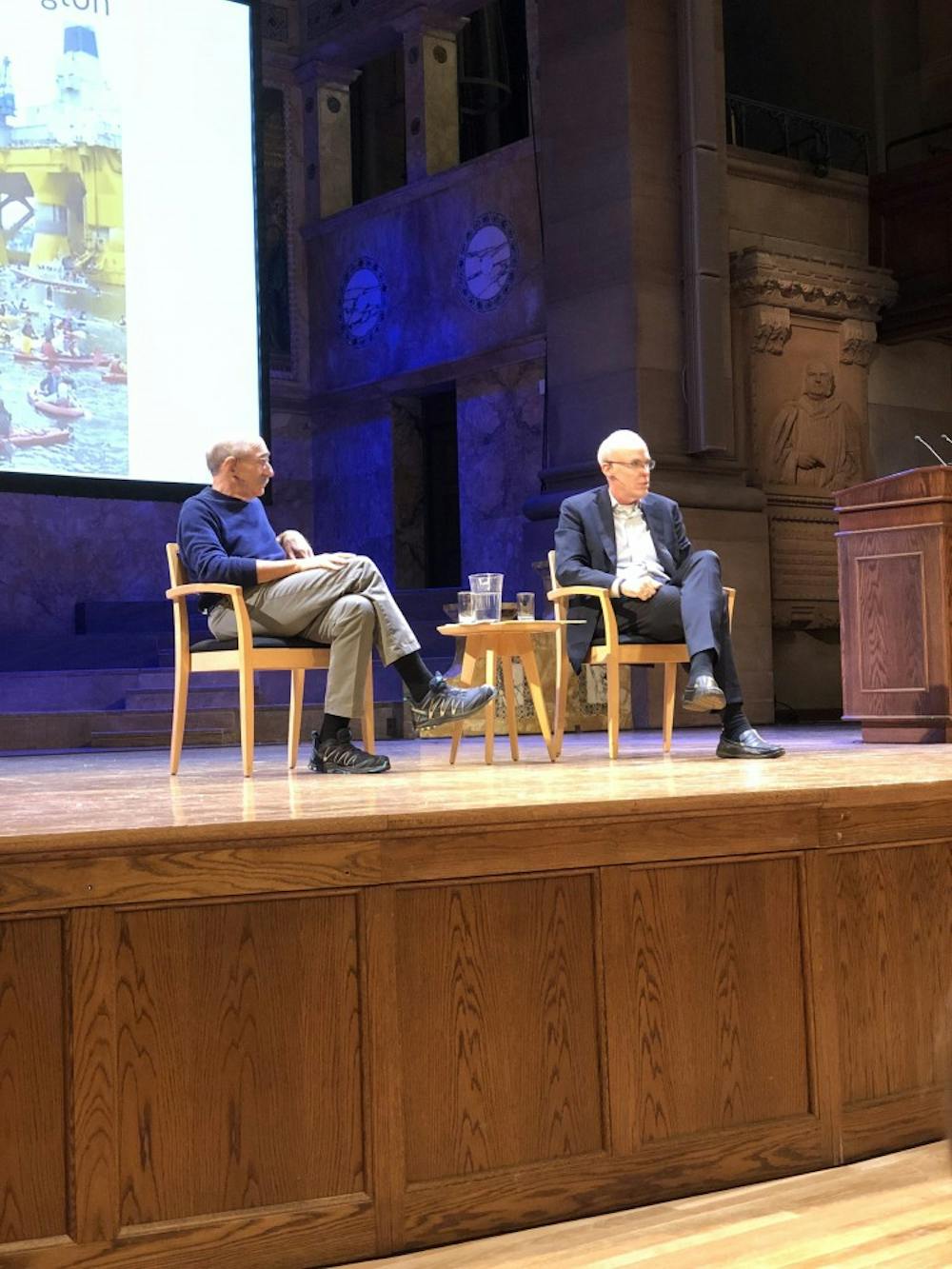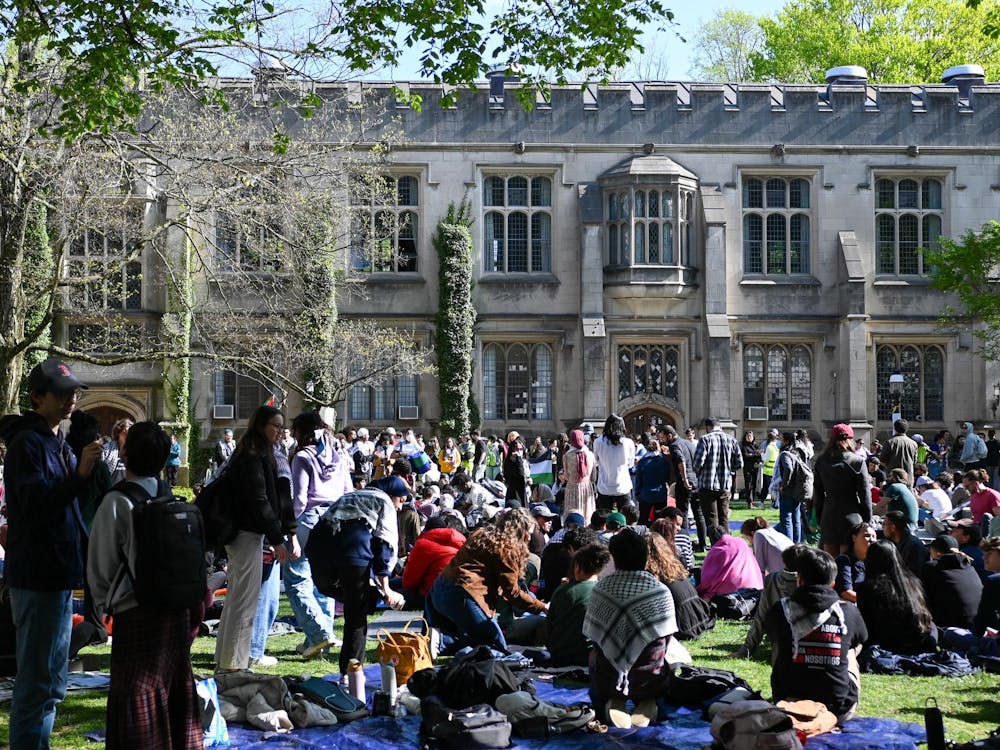Art has become one of the most important ways to combat climate change, according to world-renowned environmental activist Bill McKibben.
On Thursday, Oct. 25, McKibben discussed the role of art within the anti-climate change movement as a part of the series that promotes the “Nature’s Nation: American Art and Environment” exhibit at the University Art Museum. The lecture was jointly hosted by the University Art Museum and Princeton Environmental Institute.
Citing the great works of socially conscious art inspired by the AIDS epidemic, McKibben argued that art has been a vital means for promoting social change. Yet it seems to have only recently translated to the anti-climate change movement.
Now, however, art seems to be the most effective mode of protest against environmental pollution.
“We don’t have the money to fight the fossil fuel industry,” he said, referring to anti-fossil fuel organization 350.org, which he leads, “but we do have a vision. Art is one of the most important ways of getting that vision across.”
However, there may not be enough time: The recent United Nations Intergovernmental Report on Climate Change predicts that, without dramatic changes to the global economy within the next 12 years, the effects of climate change will be irreversible.
McKibben saw the effects of climate change himself this summer, when he witnessed the collapse of a glacier in Greenland. During the expedition, he accompanied a poet from the Marshall Islands, a low-lying Pacific archipelago that may be destroyed by rising sea levels in the near future.
Among the most powerful works of performance art he had seen was from the Australian city, Newcastle, one of the largest oil tanker ports in the world.
A group of kayakers — or “kayaktivists” — formed a blockade around boats leaving the port. McKibben compared it to the Rebel Alliance against the Death Star.
With that example in mind, he asked the audience “why Princeton University, one of the richest universities on Earth, hasn’t seen [it] fit to divest from fossil fuels.”
During the Q&A session, the 11-year old daughter of Denise Mauzerall, a professor of environmental engineering and international affairs, asked about the individual ways that a person at home can help address the issue.
McKibben was reluctant to say that individuals’ lifestyles have any impact on the climate. Rather, he re-emphasized that the greatest impact comes from those who use their platforms, such as art, to raise awareness.

The lecture was held at 5:30 p.m. in Richardson Auditorium.









